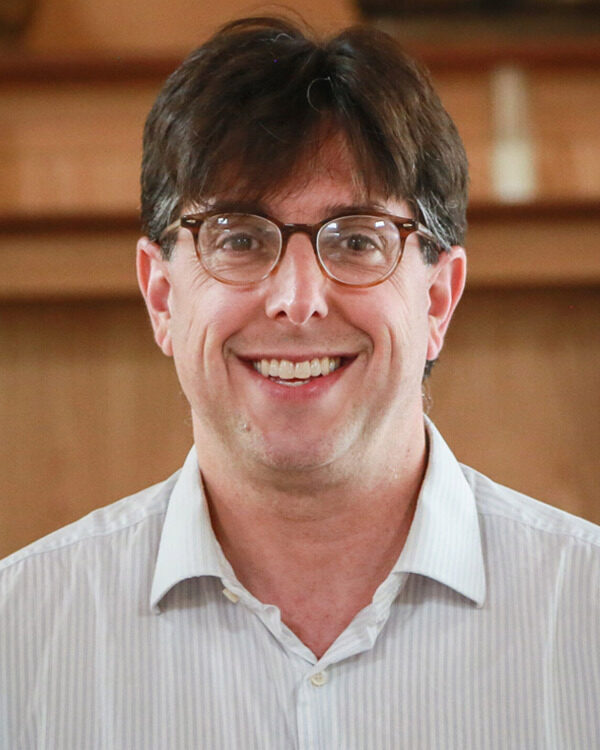Ajahn Amaro from the Thai forest tradition, a monastic, a monk of close to 40 years now broke down the the Four Noble Truths in medical language, and the way that he characterized it was that these four truths roughly parallel in medicine, a diagnosis, the cause or etiology, the prognosis (where it’s going), and the treatment.
And so the diagnosis, the first noble truth, is that it is not easy being human. That some measure of suffering is woven into the fabric of our life, that it is not our fault, and we can’t actually explain away the first noble truth in terms of our own personal failings or the conditions of our own life. This is actually something that’s deeply shared.
The recognition of the universality of this is important. Paul Fulton speaks about psychotherapy and its limitations, and I quote him here not to be dismissive of psychotherapy, which is beautiful, and sometimes more helpful or appropriate than meditation, but to acknowledge its limitations and touch into the universality of this diagnosis. Fulton writes, “Psychotherapy is a powerful tool for many issues, but it takes discernment to know what can and cannot be addressed in therapy. Analyzing problems innate to being born as a human may be akin to handing a shovel to someone who is caught in a pit, when what is really needed is a ladder. To recognize insecurity as a fact of human existence, and not evidence of shameful shortcomings helps relieve ourselves of the unrealistic expectation that it is a problem we should be expected to solve, and allows for a different way of encountering, holding, and opening to this as a reality. This possibility is where our Dharma practice begins.”
So a diagnosis and a cause: taṇhā, craving, which is different than desire, different than being clear on what supports our well being. It’s that feverish, impulsive need to fill some hole in the heart that feels like it needs filling. And then the prognosis: that actually forms of freedom are possible that we do not suspect. That some of the capacities of the heart that we discover in stillness and silence are not really easily imagined outside of that stillness. And then the treatment: what do we do? And the Buddhist suggestion is this there is a path, the Eightfold Path.
The Eightfold Path is broken down into three baskets. There's ethical conduct (sīla): wise speech, wise action, wise livelihood. And then there's samādhi, or mind training: wise effort, wise concentration, wise mindfulness. And then the wisdom basket, pañña in Pāli, of wise intention and wise view. I want to speak about about sīla, samādhi, and pañña both as how they are supported by love and how they grow love.
Ajahn Chah said that sīla-samādhi-pañña, ethical conduct, mind training, and wisdom, are not three separate activities, they are part of the same fruit. They are the mango pit, flesh, and skin. And that mango may be in a different state of ripeness or unripeness, may be big or small. But these three cultivations are one and the same: inextricably bound.
We’ll see how that is so.
To be mindful of goodness brings love, and to be mindful of pain brings love. That is something like a miracle. This weird asymmetry, that to attend to goodness brings love, and to attend to suffering also brings love. That’s not something that we should take on faith. But this is the laboratory.
The more attuned we are to our hearts, the clearer our ethical behavior becomes. So the more we actually become embodied, start to feel our body fully, to feel our heart, the clearer ethical conduct becomes. It’s like we become attuned to our own system in such a way that we begin to see that doing good feels good. And the kind of karmic loop, when we act out of alignment with our own deepest integrity, that feedback loop gets shorter and shorter, so we really feel it. And this clarity breeds more careful, non-harming behavior.
The steadier and more unified the mind gets, the deeper the love can be. Sometimes the mind gathers so singularly around an object — the breath, a mettā phrase, the body, sound, sight, looking into the eyes of another person — the mind just becomes unified. And all the static, fragmentation, and division collapses. And in that mind state, it’s like a drop of love reaches everywhere.
The mind is said to to be boundless. That’s not making a statement about the nature of mind, but the actual experience is that in this moment there is love without end, without discrimination, without preference.
And then lastly, the more clearly we see, the more effortless the love becomes. Clearly we see the less tenable hatred becomes.
(Excerpt from talk)
